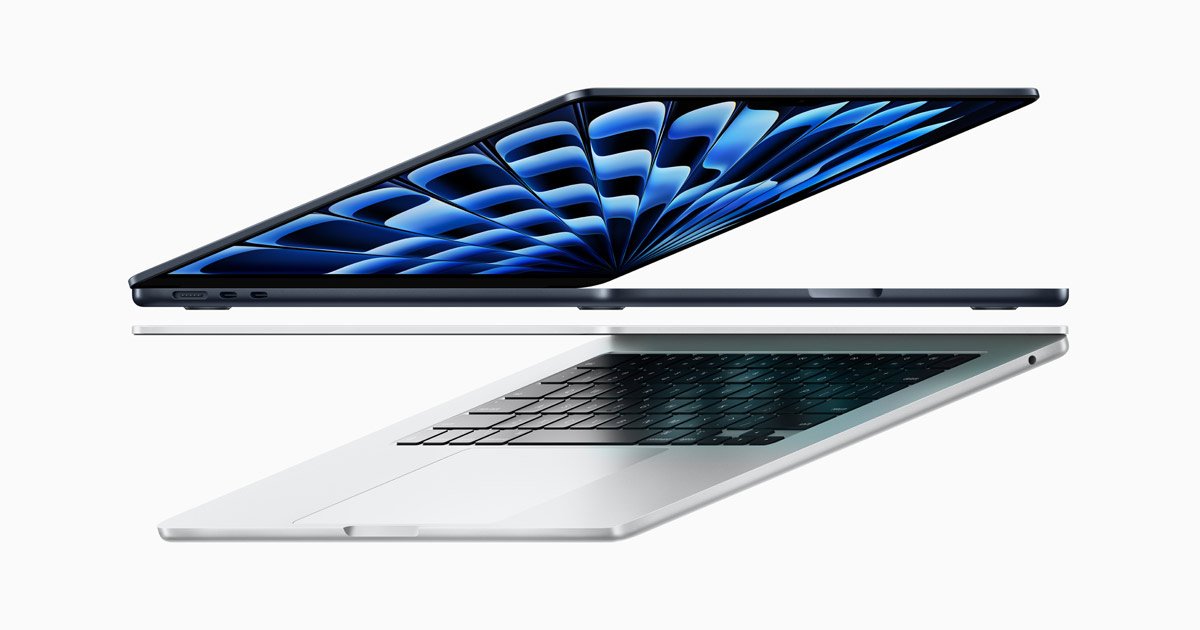In a groundbreaking development, a modified M3 MacBook Air has managed to outperform the pricier M3 MacBook Pro, thanks to an innovative cooling solution. This breakthrough showcases how strategic enhancements can significantly boost the capabilities of already powerful devices.
Key Highlights:
- The M3 MacBook Air, traditionally fanless, was modified with Frore’s AirJet, a solid-state cooler, achieving performance on par with the M3 MacBook Pro.
- The AirJet technology uses a thin assembly of materials to create vibrations and generate a back-pressure that propels air, mimicking traditional cooling fans but in a more compact form.
- Before the modification, the M3 MacBook Air was approximately 7% slower than the MacBook Pro when running Cinebench R23 tests due to thermal throttling issues.
- Post-modification, the M3 MacBook Air matched the MacBook Pro in performance benchmarks, signaling a significant advancement for thin laptop designs without compromising on cooling efficiency.
- Frore’s AirJet is not yet commercially available, and there’s no upgrade kit offered for the MacBook Air. This mod was showcased to demonstrate the potential of solid-state cooling solutions in compact devices.
Innovative Cooling Transforms Performance
The modification involved the integration of Frore’s AirJet cooling system into the MacBook Air, a device known for its sleek, fanless design. The AirJet, highlighted at CES, represents a leap in cooling technology, employing a mechanism that allows for efficient heat dissipation without the need for bulky components.
A Leap in Laptop Cooling Technology
The Frore AirJet system stands out by offering a solid-state cooling solution that matches traditional fan systems’ efficiency in a much smaller package. This development could pave the way for even thinner laptops without sacrificing performance to overheating. The MacBook Air’s transformation post-AirJet installation underscores the potential for enhanced performance through improved cooling, challenging the conventional design limitations of ultra-portable laptops.
Advantages of Solid-State Cooling
The integration of Frore’s AirJet into the MacBook Air highlights several critical advantages:
- Compactness: The AirJet’s slim profile allows it to be installed in laptops without significantly altering their design or increasing their thickness.
- Efficiency: Despite its small size, the AirJet is capable of removing a substantial amount of heat, ensuring that the processor can maintain its performance without thermal throttling.
- Silence: As a solid-state system, the AirJet operates quietly, maintaining the MacBook Air’s reputation for silent operation even under heavy loads.
The Future of Laptop Cooling and Performance
While the Frore AirJet system is not yet available for technology, this modification experiment sheds light on the significant impact that advanced cooling technology could have on laptop performance, especially for models like the MacBook Air that do not feature active cooling systems. As laptops continue to get thinner and more powerful, the demand for efficient, space-saving cooling solutions will undoubtedly grow.
The modification of the MacBook Air with Frore’s AirJet cooling system illustrates a significant potential for enhancing the performance of fanless laptops, bringing them on par with or even surpassing their actively cooled counterparts. This development signals an exciting future for laptop design, where compactness and high performance can coexist without compromise.






























